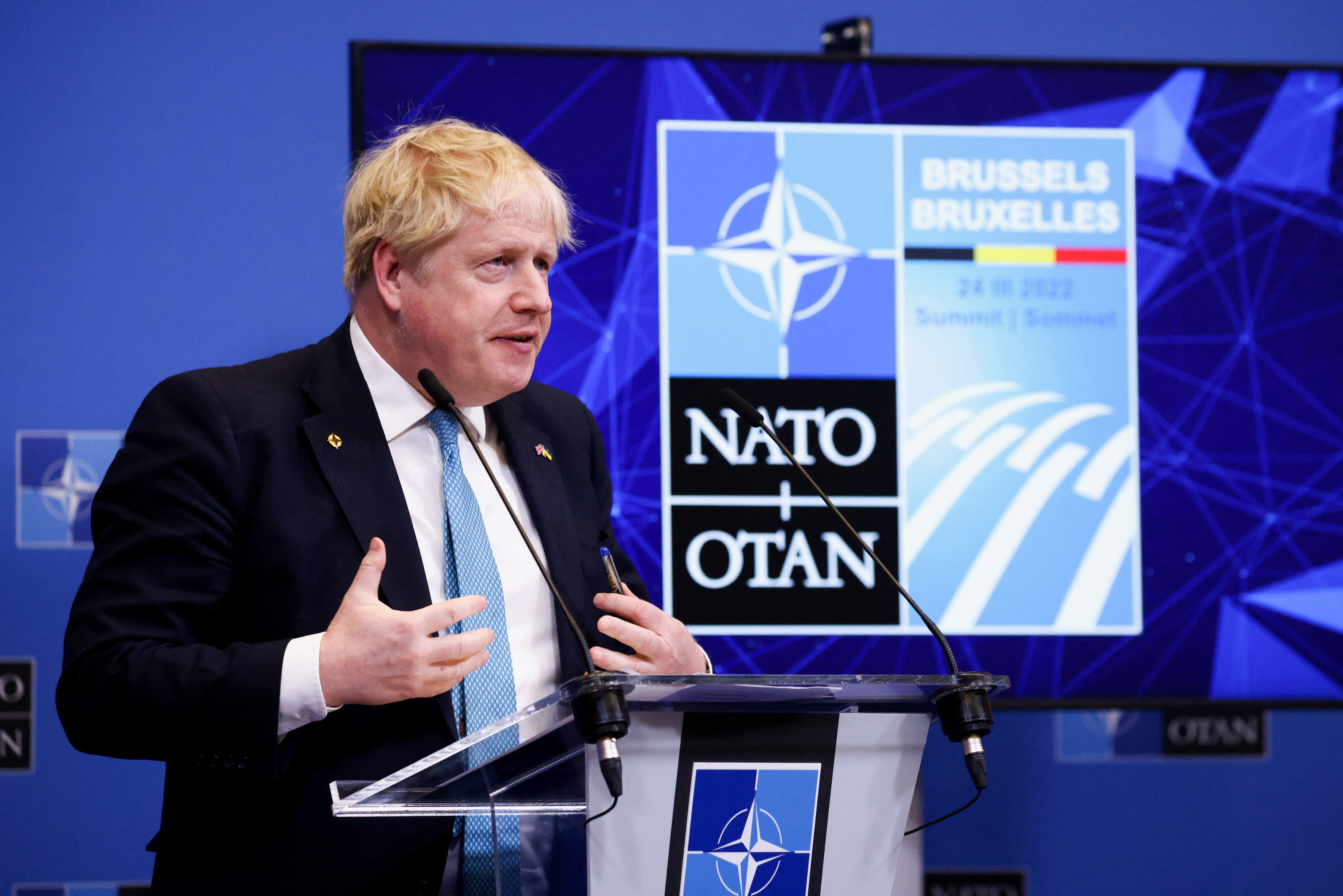The hard lesson from Ukraine: British security relies on peace in Europe
As members of Nato, our security border is not the cliffs of Dover, but the frontiers of our Eastern European allies that border Ukraine


When Vladimir Putin plotted his unprovoked and illegal invasion of Ukraine, he badly underestimated the skill and the bravery of the Ukrainian people. But he also miscalculated the unity of the west.
Recent weeks have been a reminder of the power and importance of alliances. When the UK, the EU, the US and the rest of our allies and partners speak with one voice – and act in common – it has powerful effects.
The government should respond to this moment not with complacency, but with a new conviction to nurture those relationships with the allies it has neglected.
It is no secret that the government’s needlessly confrontational approach to leaving the EU has damaged the UK’s standing with major European allies, and relationships must be rebuilt to make Brexit work for Britain.
The government’s plan in the Integrated Review for security and international policy had a blind spot when it came to Europe and was trumpeted by the prime minister as a “tilt” to the Indo-Pacific. “Global Britain” was his vanity plan, not a national strategy for Britain to be a power for good in the world.
But Tory miscalculation runs deeper than this. It took security and prosperity in Europe for granted. As members of Nato, our security border is not the cliffs of Dover, but the frontiers of our Eastern European allies that border Ukraine. While this region will be vital to our future, focus there must not come at the expense of commitments to security in our own continent.
The prime minister’s repeated blunders show that this strategic misjudgement stems from the very top of the government. Just months before Putin’s invasion, Boris Johnson declared “the old concepts of fighting big tank battles on European land mass are over.” He has engaged unnecessary diplomatic squabbles with European partners. And last week, he compared the war in Ukraine to Britain’s EU referendum vote – a stupid and offensive comparison detached from reality.
For all its rhetoric, the UK has been playing catch-up on sanctions, with Labour having to drag them along to speed up and strengthen our measures.
And the government’s response to new threats is now falling behind. The German Chancellor, Olaf Scholz, rightly declared that the invasion of Ukraine “marks a watershed in the history of our continent” and doubled the defence budget. Denmark, the Netherlands, and Poland have announced budget boosts. Meanwhile, the Chancellor was silent on defence in the spring statement.
On Monday, the EU also published its new security and defence plan which said that “Russia’s war of aggression constitutes a tectonic shift in European history” and pledged to make the EU a stronger security player. But it has UK uncertainty running throughout it – only stating that “we remain open to a broad and ambitious security and defence engagement with the UK”.
The UK government is not clear if they even want a security relationship with the EU, and has no plans to reexamine the Integrated Review.
The prime minister’s tendency to seek quarrels with European friends has consequences. In meetings with European governments during recent visits, leaders ask basic questions of Britain: what are our priorities? What do we stand for? While they welcome the unity over Ukraine, they do not know if it will outlast this crisis.
Labour wants to make Brexit work – and part of this is having a foreign and defence policy driven by our internationalist traditions. This means forging alliances, rebuilding relationships and being a reliable and trustworthy ally to our friends in Europe and beyond.
We want the UK to be a force for good in the world – and we can be a bigger power for good when we stand together with allies. At its best, this type of British leadership can forge lasting alliances just as a Labour government did with Nato 70 years ago.
As part of this, European allies matter. That is why we are in Berlin this week for talks with our SPD colleagues in government, strengthening ties and discussing the common threats we face.
Britain should be leading the debate about the future of European security with a new diplomatic drive: giving the highest priority to security in Europe, the North Atlantic and the Arctic, and rebuilding relationships with European capitals.
To keep up to speed with all the latest opinions and comment sign up to our free weekly Voices Dispatches newsletter by clicking here
A creative Britain would be seeking to reinvigorate flexible formats like the E3 with France and Germany and exploring ideas like the European Security Council.
UK leadership could be securing new security agreements with European partners that would allow British businesses to take advantage of new defence investment and help create a more capable European pillar in Nato.
And we could deepen cooperation with the EU on security and foreign affairs. That’s in our common interest and common sense. But such an approach requires a British government that can restore trust, reliability and our country’s traditions of leadership.
We will be dealing with the consequences of Putin’s unprovoked and barbaric invasion for years. But we will only be successful at confronting them when the government remembers the importance of security cooperation with our nearest allies. British security relies on peace in Europe.
Join our commenting forum
Join thought-provoking conversations, follow other Independent readers and see their replies
Comments
Bookmark popover
Removed from bookmarks